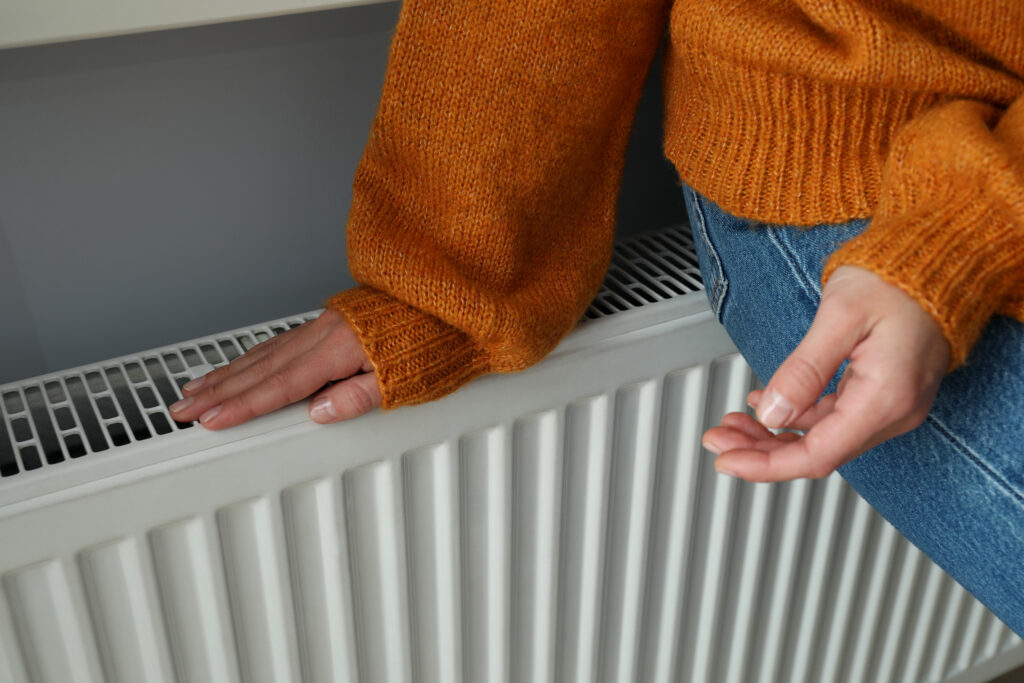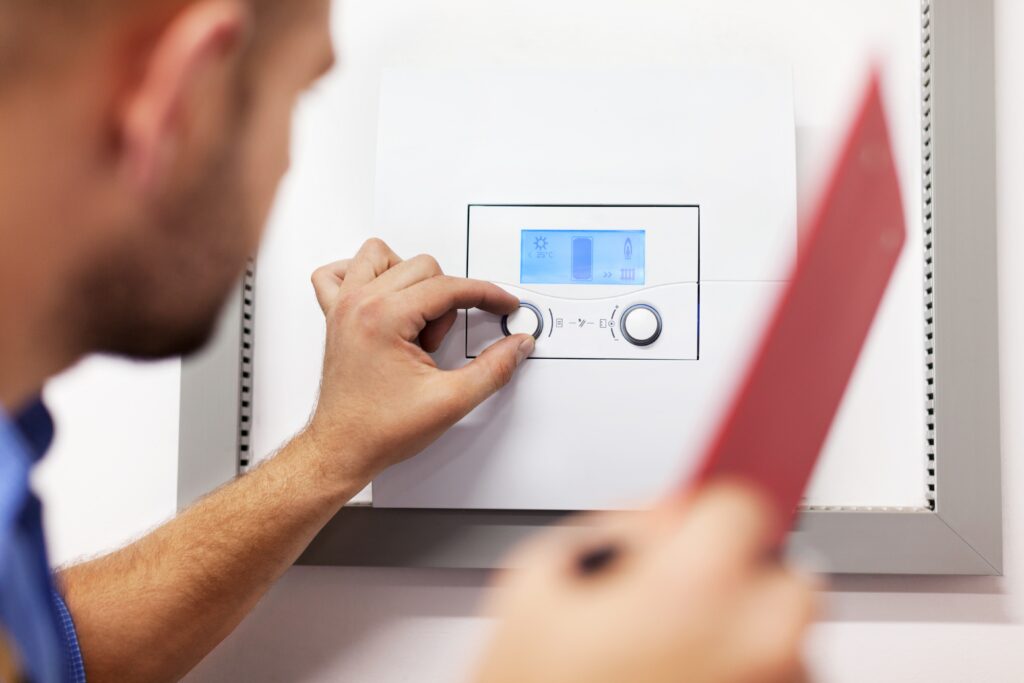What is an Unvented Cylinder? A Comprehensive Guide
In the world of modern heating systems, unvented cylinders have become a popular choice for homeowners and businesses looking to improve their hot water supply. For residents in places like Beckenham and London, where efficiency and reliability are paramount, understanding the role of an unvented cylinder is essential. Whether you’re planning a new installation, exploring options for boiler repair, or consulting a plumber about your system’s needs, knowing the basics about unvented cylinders can help you make informed decisions.
An unvented cylinder is a type of hot water storage system that connects directly to the mains water supply, unlike traditional vented cylinders, which rely on a cold water storage tank. This design offers several advantages, particularly in terms of water pressure, space-saving, and energy efficiency. But how exactly do unvented cylinders work, and why are they an increasingly popular choice in areas like Beckenham and across London?
The Basics of Unvented Cylinders
At its core, an unvented cylinder is designed to store and supply hot water efficiently. The direct connection to the mains water supply means that the cylinder can deliver hot water at higher pressures compared to vented systems. This is particularly advantageous in urban areas like London, where high water pressure is often expected for modern conveniences such as powerful showers and quick-filling baths.
The cylinder itself is typically made of stainless steel, a material chosen for its durability and ability to withstand the higher pressures associated with mains water. Inside the cylinder, the water is heated either by an immersion heater or indirectly via a boiler. The system is sealed, meaning there is no need for a separate cold water storage tank, which is a common feature in older vented systems.
One key feature of unvented cylinders is their reliance on safety mechanisms to manage pressure. Because the system is sealed, it must have components like pressure relief valves, expansion vessels, and temperature controls to ensure safe operation. These features help maintain a consistent and safe level of pressure, preventing potential issues such as leaks or damage to the cylinder.
Benefits of Unvented Cylinders
The benefits of unvented cylinders extend beyond improved water pressure. For properties in areas like Beckenham and London, where space can be a premium, the compact nature of an unvented system is a significant advantage. By eliminating the need for a cold water storage tank, these systems free up valuable space in lofts or other storage areas.
In addition to space savings, unvented cylinders offer greater flexibility in terms of installation. Because they don’t rely on gravity to maintain water pressure, they can be installed almost anywhere within a property. This is particularly beneficial for properties with unconventional layouts or those undergoing renovations.
Another advantage is the improved energy efficiency of unvented cylinders. Many models are designed with excellent insulation to minimise heat loss, ensuring that stored hot water remains at the desired temperature for longer periods. This can result in lower energy bills, an appealing prospect for homeowners and businesses alike.
The Role of a Plumber in Installing and Maintaining Unvented Cylinders
Installing an unvented cylinder is a task that requires expertise and precision, making the role of a qualified plumber crucial. Unlike vented systems, unvented cylinders operate under higher pressure and require specific safety measures to ensure proper functioning. In areas like Beckenham and London, where the demand for professional plumbing services is high, finding an experienced plumber is essential for a successful installation.
The installation process typically involves connecting the cylinder to the mains water supply and integrating it with the existing heating system, whether that’s a boiler or an alternative heating source. Safety components such as pressure relief valves and expansion vessels must be correctly installed and tested to meet regulatory standards.
Once installed, regular maintenance is vital to ensure the cylinder continues to operate efficiently and safely. This is where the expertise of plumbers and heating engineers comes into play. Routine inspections and servicing can help identify potential issues early, such as wear on safety components or sediment buildup within the cylinder. Addressing these issues promptly can prevent more significant problems and extend the lifespan of the system.
Unvented Cylinders and Boiler Repair
While unvented cylinders can operate independently of a boiler, they are often integrated into a broader heating system that includes a boiler. This integration allows for efficient heating of water and distribution throughout the property. However, if the boiler experiences issues, it can impact the performance of the unvented cylinder.
Boiler repair is a common service in Beckenham and London, particularly during colder months when heating systems are in high demand. If a boiler isn’t functioning correctly, it may fail to heat the water within the cylinder, leading to issues such as insufficient hot water supply or uneven water temperature.
In such cases, consulting a qualified plumber or heating engineer is essential. These professionals can diagnose and resolve boiler-related issues, ensuring the heating system and unvented cylinder work seamlessly together. Regular servicing of both the boiler and cylinder can minimize the risk of breakdowns and maintain consistent performance.
Safety Considerations for Unvented Cylinders
Safety is a top priority when it comes to unvented cylinders, as the higher pressure of these systems necessitates robust safety measures. Proper installation by a qualified plumber is the first step in ensuring safety, as this ensures all components are correctly installed and functioning as intended.
Key safety features include pressure relief valves, which release excess pressure to prevent damage or leaks, and expansion vessels, which accommodate changes in water volume as it heats and cools. Additionally, temperature controls help prevent the water from overheating, reducing the risk of scalding.
For properties in Beckenham and London, adherence to safety regulations is non-negotiable. Unvented cylinders must comply with local building codes and standards, which are designed to protect occupants and ensure the system operates safely. Working with experienced plumbers who understand these regulations is essential for peace of mind.
Unvented Cylinders in Beckenham and London
In areas like Beckenham and London, unvented cylinders are an increasingly popular choice due to their numerous benefits and compatibility with modern heating systems. The high water pressure provided by these systems is particularly appealing in urban areas where residents expect powerful showers and quick access to hot water.
Moreover, the space-saving design of unvented cylinders is ideal for properties where maximizing available space is a priority. This makes them a practical choice for flats, apartments, and houses with limited storage options.
For businesses in London, unvented cylinders offer reliable and efficient hot water solutions that can meet the demands of high-usage environments. From restaurants to office buildings, these systems provide the consistent water pressure and temperature control needed for smooth operations.
Conclusion
An unvented cylinder is a modern, efficient, and versatile hot water storage solution that offers numerous advantages for properties in Beckenham, London, and beyond. Its connection to the mains water supply ensures high water pressure, while its compact design eliminates the need for bulky storage tanks, saving valuable space.
The installation and maintenance of unvented cylinders require the expertise of qualified plumbers, who can ensure the system operates safely and efficiently. Regular servicing and inspections are essential to address potential issues early and maintain the longevity of the system.
Whether you’re considering an unvented cylinder for a new installation, seeking boiler repair services, or consulting a plumber for advice, understanding the role of this innovative system can help you make informed decisions. For residents and businesses in Beckenham and London, investing in an unvented cylinder is a step toward improved comfort, efficiency, and reliability in hot water delivery.
FAQs About Unvented Cylinders
1. What is an unvented cylinder?
An unvented cylinder is a modern hot water storage system that is directly connected to the mains water supply. Unlike traditional vented systems, it does not rely on a separate cold water storage tank in the loft. Instead, it provides high-pressure hot water on demand, making it ideal for homes that require strong water flow to multiple outlets at the same time. Because unvented cylinders are completely sealed, they also reduce the risk of water contamination, ensuring a safer and more efficient hot water supply.
2. How does an unvented cylinder work?
An unvented cylinder works by drawing cold water directly from the mains, which is then heated either through an internal immersion heater (in a direct system) or via an external boiler (in an indirect system). As the water heats up, it expands, which increases pressure inside the system. To ensure safety, expansion vessels and pressure relief valves control this pressure, preventing any risk of leaks or damage. These safety mechanisms make unvented cylinders reliable, energy-efficient, and compliant with building regulations. As a result, they provide a consistent and powerful hot water supply without the need for gravity-fed tanks.
3. What are the benefits of using unvented cylinders?
There are several key benefits to installing an unvented cylinder in your home:
-
- High-pressure hot water: Because unvented cylinders take water directly from the mains, they deliver stronger water pressure, making showers more powerful and taps more efficient.
-
- Space-saving design: Since they don’t require a separate cold water tank, they free up valuable space in your loft or airing cupboard.
-
- Flexible installation: They can be placed anywhere in the home, as long as they meet ventilation and safety requirements.
-
- Reduced contamination risk: Unlike vented systems, unvented cylinders are sealed, which reduces the chances of bacteria or debris entering the water supply.
-
- Energy efficiency: Modern unvented cylinders are well insulated, meaning they retain heat effectively and reduce energy wastage, helping to lower utility bills.
4. Is an unvented cylinder the same as an unvented boiler?
No, an unvented cylinder and an unvented boiler are two different components in a home heating system. A boiler is responsible for heating water, which can be used for both central heating and hot water supply. In contrast, an unvented cylinder is simply a storage unit that holds and distributes pre-heated water to taps, showers, and other outlets. Boilers can be either system boilers, which require an external cylinder, or combi boilers, which do not need a separate hot water cylinder. If you have an unvented boiler, it’s important to check whether you need an unvented cylinder to store your hot water supply efficiently.
5. Do unvented cylinders require regular maintenance?
Yes, routine servicing and maintenance are essential to keep an unvented cylinder operating safely and efficiently. Annual servicing by a qualified engineer ensures that key components such as pressure relief valves, expansion vessels, and thermostats are functioning correctly. Regular maintenance helps prevent problems such as pressure build-up, leaks, or inefficient heating, which could lead to costly repairs or system failure. Additionally, many manufacturers require an annual service to maintain warranty coverage. If you notice issues like fluctuating water pressure, unusual noises, or inconsistent hot water, it’s advisable to have your unvented cylinder inspected as soon as possible.




